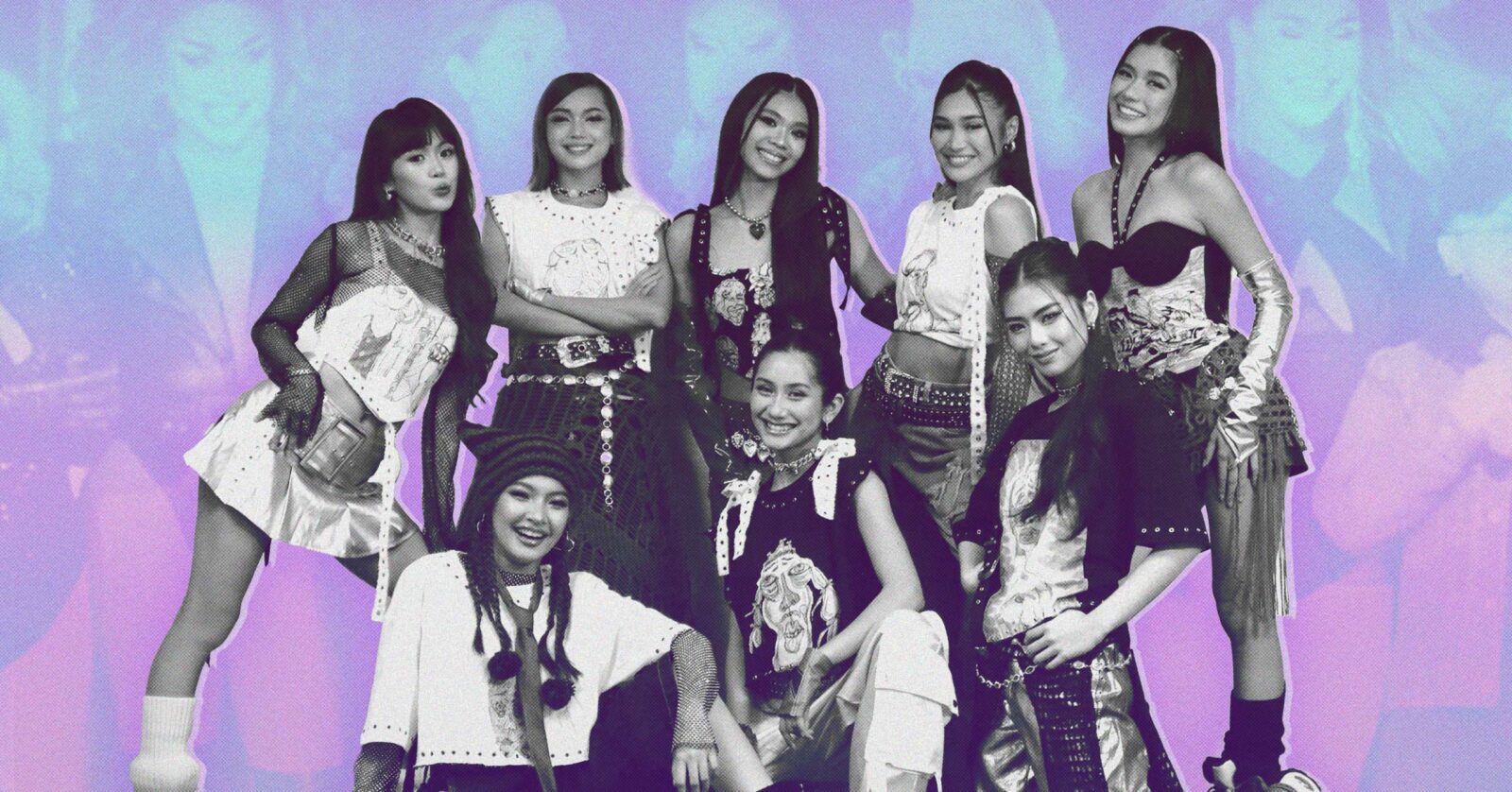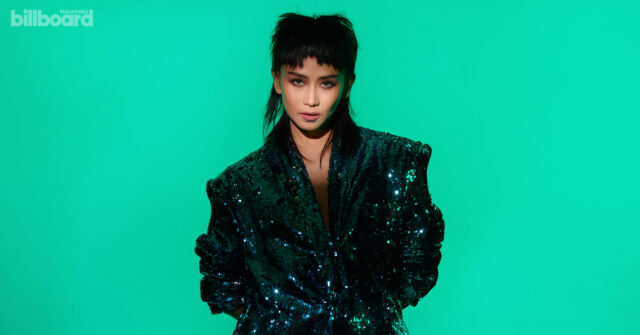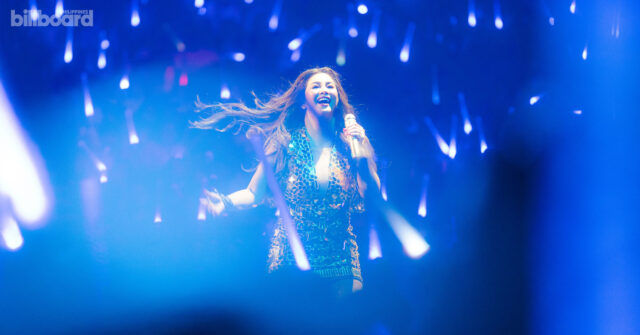Last week, BINI made a surprise appearance during a drag show event in Quezon City. The eight-piece, along with drag queens Zymba Ding, J Quinn, and more, performed their chart-topping hits “Pantropiko” and “Salamin Salamin” (Mirror Mirror).
“Mabuhay ang mga bakla! (Long live the gays!)” BINI’s Maloi said during the night, as she opened up about how overwhelmed the girl group has been with the support of the LGBTQ community for their music. “Thank you so much sa pagmamahal na binigay niyo sa BINI, grabe, ‘di namin akalain na ganito ‘yung matatanggap namin so abangan niyo po ‘yung mga susunod pa naming songs (Thank you for all the love that you’ve given to BINI, wow, we never thought that we’d be able to get this, so please watch out for our next songs).”
In response, drag performer Salmo Nella shared, “Ganito karaming mga bakla ang magmamahal sa inyo, mas marami pa actually, kaya sobrang salamat na nakasama namin kayo tonight (Look at how many gay people here love you, there’s a lot more actually, that’s why thank you so much for being with us here tonight).”
That wasn’t the only instance of BINI being warmly welcomed by the queer community. In January, they were featured as guest judges on the Manila Luzon-helmed drag competition show, Drag Den. In another event, BINI’s Aiah was called up on stage to perform while she was out supporting a drag show. “The plan was just to watch some drag [shows] and support some drag queens but they grabbed me to go dance on the stage [with them]…I love this community. It’s filled with so much love. You guys truly deserve all the love in this world.”
In the world of pop stars, there are a select few that become staunch allies and symbols of the LGBTQ community. Think of celebrities like Cher, Madonna, Beyoncé, Britney Spears, Mariah Carey, and so on and so forth. There’s even a term coined for it: the gay icon. The gay icon is often a cis female, with campy aesthetics (think Lady Gaga), and strong personalities, often earning them the title of “diva.” In Georges-Claude Guilbert’s 2018 book, Gay Icons: The (Mostly) Female Entertainers Gay Men Love, he talks about how the “gay icon” serves as a North Star to which young gay men resonate deeply with — exhibiting traits like resiliency, fierceness, boldness, and more and being feminine, idealistic role models that gay men may lack in their own lives, especially as they stay inside the closet.
Dr. Milly Williamson, a lecturer in media and anthropology at Goldsmiths, University of London, told The Independent that “People from whatever community need to feel a sense of visibility – and that lands in celebrity culture…It is inevitable that people will seek out icons and figures.”
In a sense, celebrity culture and by extension, fandom culture, create communities with shared values that may not be present in society-at-large. For example, BINI have always been outspoken about their advocacy of gender empowerment, and many of their fans become fans in the first place because they feel like they have a sense of belongingness in that community.
In the Philippines, we have similar figures like Regine Velasquez-Alcasid and Sarah Geronimo, who despite not being queer, have become beacons of hope and confidence for LGBTQ Filipinos all over the world.
In Billboard Philippines’ maiden issue with Velasquez-Alcasid, she opened up about how it felt knowing that her music has resonated with queer Filipinos over the years, despite her not being queer herself. “You just don’t realize how songs like that can inspire or empower someone,” she mused as she recalled instances where her fans would tell her that her songs helped them move on from heartbreak or come out of the closet.
When you nuance this phenomenon to the conservative, and largely homophobic state of the Philippines, the position that female pop star gay icons occupy is a unique one. In Philippine law and in society-at-large, LGBTQ+ people have faced clear and unjust consequences when expressing themselves through art, music, and activism.
Female pop stars and gay men find similar struggles in pushing against the patriarchal notions of “femininity.” In a society where women are expected to just be demure, or to be in service of cis-straight men, female pop stars take up space and show strength, resilience, and talent to be who they want to be. More often than not, gay men identify with that same struggle of finding strength and acceptance, and they find comfort in these female pop stars who experience similar things.
Whether it’s Regine, Sarah G, the Sexbomb Girls, or BINI, pop music has always been a safe space for people of all gender identities to express themselves in “traditionally effeminate” ways — unapologetically dancing to “Pantropiko,” hitting the same high notes that Regine does, or doing both for Sarah’s long list of hits. In a country where champions of gender rights in the mainstream are few and far in between, queer Filipinos have found some of their truest allies in pop stars who don’t just make music for them to dance to, but proudly rally for queer people to be accepted.



